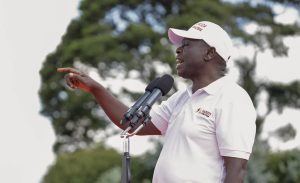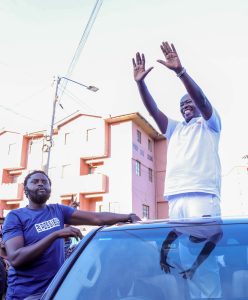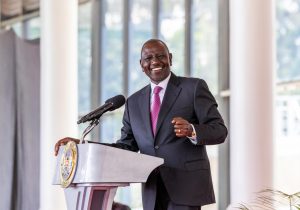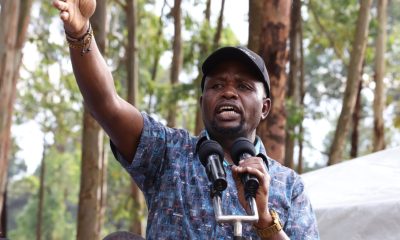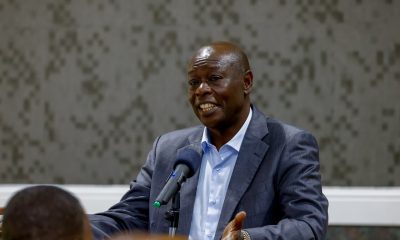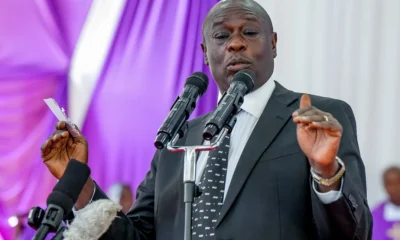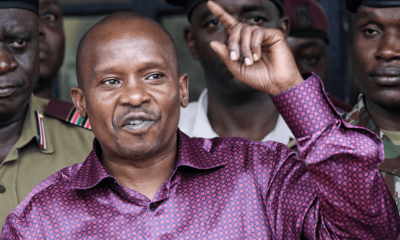News
ANALYSIS: Wantam? How Gachagua Will Make Ruto President Again in 2027
In politics, as in tragedy, the hero often becomes the author of his own destruction—and sometimes, inadvertently, the architect of his enemy’s triumph.
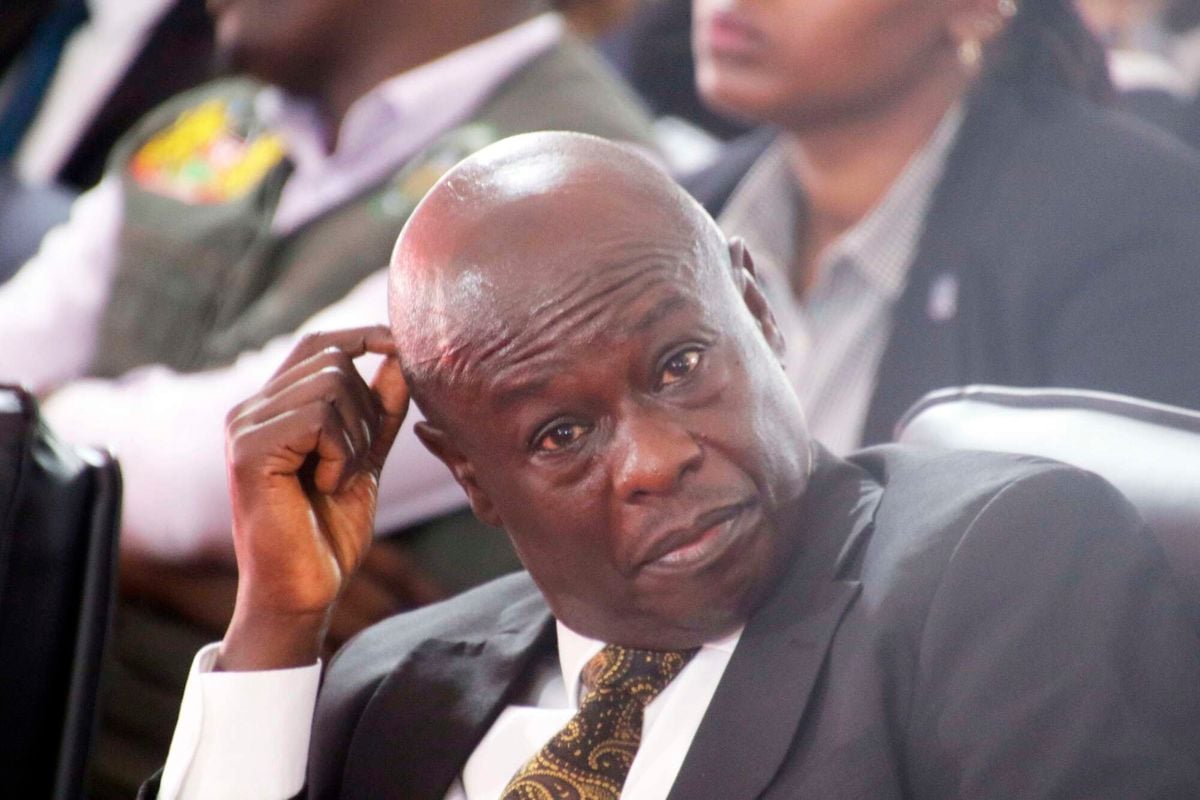
An Analysis of Kenya’s Political Paradox
In the theater of Kenyan politics, few ironies are as striking as the spectacle of Rigathi Gachagua potentially becoming William Ruto’s greatest electoral asset for 2027.
The man who was unceremoniously ejected from the Deputy Presidency through impeachment may now be orchestrating the very scenario that secures his former boss another term at State House.
This is not by design, but by default—a masterclass in political self-sabotage that threatens to reshape Kenya’s opposition landscape.
The unintended kingmaker
Gachagua’s trajectory since his impeachment reads like a political cautionary tale.
What began as a moment of national sympathy has devolved into a series of missteps that collectively serve Ruto’s interests more effectively than any campaign strategist could have planned.
The former Deputy President has managed to accomplish what Ruto’s own public relations machinery struggled to achieve during the tumultuous Gen-Z protests of 2024: making the President appear reasonable by comparison.
The most glaring example of this phenomenon was Gachagua’s inflammatory comparison of potential 2027 election rigging to the 2007/08 post-election violence, which he suggested would “look like a Christmas party” in comparison to what might unfold.
This reckless rhetoric didn’t just cross a red line—it obliterated it. In a single stroke, Gachagua managed to alienate moderate voters, responsible opposition figures, and international observers who monitor Kenya’s democratic progress.
Opposition’s greatest liability
Gachagua’s brand of politics represents everything that progressive Kenyans have sought to leave behind: ethnic supremacy, divisive rhetoric, and the weaponization of grievance. His consistent focus on “Murima” (mountain) community interests, while politically understandable from a regional perspective, reinforces the very ethnic balkanization that has plagued Kenyan politics for decades.
More damaging is his inability to articulate a national vision. When pressed on his presidential ambitions, Gachagua offers no policy prescriptions, no economic blueprint, and no unifying message.
Instead, he presents a litany of personal grievances against Ruto, reducing what should be a contest of ideas to a petty vendetta. This approach not only diminishes his own stature but makes Ruto appear presidential by default.
The sympathy capital squandered
The impeachment initially generated significant public sympathy for Gachagua, particularly among those who viewed the process as politically motivated.
However, sympathy in politics is a finite resource that must be carefully managed and strategically deployed. Gachagua has systematically squandered this capital through a series of ill-advised public outbursts and increasingly desperate attempts to remain relevant.
His recent claims about assassination plots using “chemicals,” while drawing parallels to the late Kenneth Matiba, represent perhaps the nadir of this downward spiral.
The comparison is not just historically inappropriate—given Gachagua’s own role in the Moi administration—but strategically counterproductive.
It reinforces perceptions of him as a man consumed by paranoia rather than focused on national leadership.
The mathematics of political division
From a purely electoral perspective, Gachagua’s continued prominence serves Ruto’s interests in multiple ways.
First, it fragments the opposition by creating internal divisions within what should be a unified anti-incumbency coalition.
Second, it provides Ruto with a convenient foil—someone whose extremism makes the President’s own controversial positions appear moderate.
Most critically, Gachagua’s ethnic-centered politics risks alienating the very constituencies that any successful opposition must unite.
His focus on Mount Kenya grievances, while potentially mobilizing his core base, simultaneously pushes away other communities that might otherwise be open to change.
This is particularly problematic given Kenya’s demographic realities, where no single ethnic group can deliver a presidential victory alone.
The institutional damage
Perhaps most concerning is the broader institutional damage Gachagua’s approach inflicts on Kenya’s democratic discourse.
His casual invocation of political violence, his conspiracy theories about state assassination plots, and his general disregard for democratic norms contribute to a coarsening of political debate that ultimately benefits incumbents who can position themselves as guardians of stability.
The repeated disruptions at his political events—whether orchestrated by rivals or attracted by his inflammatory rhetoric—create an atmosphere of chaos that many voters associate with political instability.
This plays directly into Ruto’s hands, allowing him to campaign as the candidate of order against the forces of disruption.
The path forward that won’t be taken
For Gachagua to transform from Ruto’s unwitting ally into a genuine threat, he would need to undergo a fundamental political transformation.
This would require abandoning ethnic politics in favor of national messaging, developing a coherent policy platform that addresses Kenya’s economic challenges, and demonstrating the temperament and judgment expected of a national leader.
More importantly, he would need to subordinate his personal grievances to the broader opposition cause, potentially stepping back to allow more unifying figures to lead the anti-incumbency charge.
The likelihood of such transformation appears minimal, given Gachagua’s consistent pattern of behavior since his impeachment.
The 2027 equation
As Kenya approaches the 2027 election cycle, the political mathematics increasingly favor Ruto’s re-election, with Gachagua serving as an unwitting campaign asset.
Every inflammatory statement, every ethnic appeal, and every conspiracy theory serves to remind voters why they might prefer the devil they know to the alternative being offered.
The tragedy for Kenya’s opposition is that legitimate grievances against the current administration—economic hardship, corruption concerns, and governance failures—are being overshadowed by Gachagua’s theatrics.
Issues that should dominate the political conversation are instead drowned out by the noise of personal vendettas and ethnic grievances.
The self-fulfilling prophecy
Rigathi Gachagua’s post-impeachment political journey represents one of the most spectacular cases of political self-sabotage in Kenya’s recent history.
In his determination to remain relevant and settle scores with his former boss, he has inadvertently become Ruto’s most valuable campaign asset for 2027.
The former Deputy President’s continued prominence serves as a daily reminder to voters of the chaos and divisiveness that characterized his tenure in office.
His inability to evolve beyond ethnic politics and personal grievances makes Ruto appear more presidential with each passing day.
Most damaging of all, his presence fractures and delegitimizes the very opposition that might otherwise mount a credible challenge to the incumbent.
Unless the broader opposition can find ways to marginalize Gachagua’s destructive influence while channeling legitimate anti-incumbency sentiment into a coherent alternative vision, Kenya may indeed witness the paradox of a man working tirelessly to re-elect the very president who engineered his political downfall.
In politics, as in tragedy, the hero often becomes the author of his own destruction—and sometimes, inadvertently, the architect of his enemy’s triumph.
Kenya Insights allows guest blogging, if you want to be published on Kenya’s most authoritative and accurate blog, have an expose, news TIPS, story angles, human interest stories, drop us an email on [email protected] or via Telegram
-

 Grapevine2 weeks ago
Grapevine2 weeks agoRussian Man’s Secret Sex Recordings Ignite Fury as Questions Mount Over Consent and Easy Pick-Ups in Nairobi
-

 News6 days ago
News6 days agoTHE FIRM IN THE DOCK: How Kaplan and Stratton Became the Most Scrutinised Law Firm in Kenya
-

 Investigations1 week ago
Investigations1 week agoMulti-Million Dollar Fraud: Three Kenyans Face US Extradition in Massive Cybercrime Conspiracy
-

 Economy7 days ago
Economy7 days agoIran Demands Arrest, Prosecution Of Kenya’s Cup of Joe Director Director Over Sh2.6 Billion Tea Fraud
-

 Business1 week ago
Business1 week agoA Farm in Kenya’s Rift Valley Ignites a National Reckoning With Israeli Investment
-

 Africa1 week ago
Africa1 week agoFBI Investigates Congresswoman Ilhan Omar’s Husband’s Sh3.8 Billion Businesses in Kenya, Somalia and Dubai
-

 Arts & Culture1 week ago
Arts & Culture1 week agoWhen Lent and Ramadan Meet: Christians and Muslims Start Their Fasting Season Together
-

 Politics2 weeks ago
Politics2 weeks agoSifuna, Babu Owino Are Uhuru’s Project, Orengo Is Opportunist, Inconsequential in Kenyan Politics, Miguna Says

